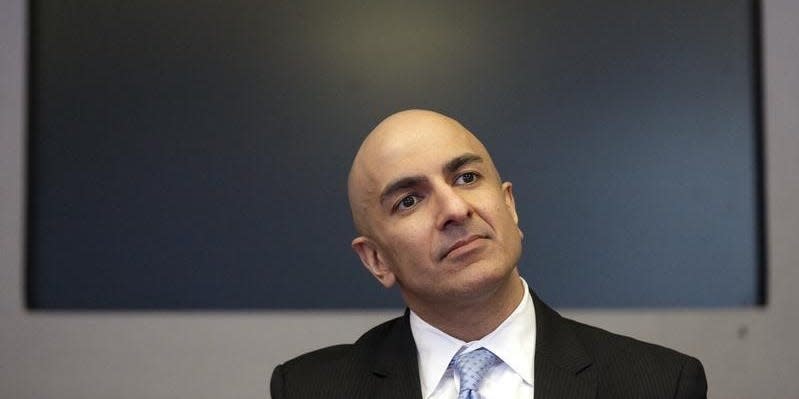Interest rates still might not be high enough to quell inflation, Minneapolis Fed president says

Minneapolis Fed President Neel Kashkari suggested interest rates are likely to stay put for an extended period.
Resilient housing inflation shows that Fed policy may still not be restrictive enough, he said.
Strong housing demand suggests the neutral rate for the housing market may have risen since the pandemic.
There are signs that the Federal Reserve's inflation crusade may still not have restricted policy enough to bring down high prices, Minneapolis Fed President Neel Kashkari said Tuesday.
Kashkari said in a note released on Tuesday that the housing market is surprisingly resilient in the face of tighter monetary policy, raising doubts about whether policymakers and the market are misjudging what the neutral rate may be in the near-term.
"My colleagues and I are of course very happy that the labor market has proven resilient, but, with inflation in the most recent quarter moving sideways, it raises questions about how restrictive policy really is," he wrote in the note released on the bank's website.
The Minneapolis Fed chief pointed out that since the 2008 Financial Crisis, the US has built fewer homes than needed to match population growth, resulting in a prolonged housing supply shortage.
Furthermore, COVID-19 spurred a rise in remote work, fueling higher demand for housing in many markets, while recent immigration influxes have added to the pressures on supply, Kashkari said.
Meanwhile, Fed policy has helped push 30-year mortgage rates higher by approximately 3.5 percentage points, climbing from about 4% prior to the pandemic to roughly 7.5% today.
"Perhaps that level of mortgage rates is not as contractionary for residential investment as it would have been absent these unique factors which are driving housing demand higher," he said, adding that the neutral rate for the housing market might have increased since the pandemic.
Kashkari said at the Milken Institute Global Conference on Tuesday that the most probable scenario for the US economy involves interest rates remaining high "for an extended period of time," while mentioning that a rate cut would be necessary if inflation dips or the labor market weakens significantly.
"Or if we get convinced eventually that inflation is embedded or entrenched now at 3% and that we need to go higher, we would do that if we needed to," he said during the conference.
Read the original article on Business Insider
